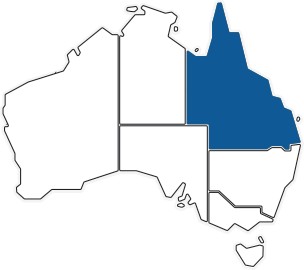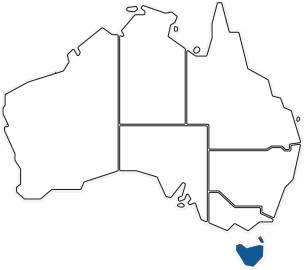Stormwater Treatment If you operate a business on public land, or discharge wastewater into public drainage systems, it’s a given that basic preventative measures are already in place to protect the stormwater network.
This includes devices that screen contaminants before they can enter the drainage system such as gross pollutant traps. You may have seen similar devices when parking your car in a public car park or shopping centre.
This environmental protection is carefully considered, approved, and included as part of any public development process.
However, many Australian businesses, have additional requirements, due to the specifics of their business that must be addressed to ensure environmental compliance.
Examples of these requirements may include:
- If your business has made physical changes that alter the flow of stormwater. E.g. changes that result in water discharge of greater than 5L per second. If this occurs, drainage systems and screening devices will fail, resulting in a greater risk of pollution and erosion.
- Does your business engage in vehicle washdown activities that result in runoff containing contaminants such as oils, grease or other hydrocarbons?
- Does your business store chemicals or fertilisers that as a result of a spill could potentially enter drains, resulting in pollution?
Many businesses engage in activities that place them at risk of causing pollution or erosion that fall outside of the capabilities of local environmental management policies.
Ensuring your business has preventative measures in place to prevent contaminants entering the stormwater network is the obligation of the business owner. Failure to comply with environmental regulations increases the risk of heavy fines or prosecution.
But how does a business owner evaluate these risks and then take preventative measures to ensure they are environmentally compliant?
Governing Bodies, Licenses and Permits
While a one size fits all approach would help to simplify environmental compliance, different business locations e.g. rural as opposed to industrial or municipal, along with the day to day activity of the business itself place unique demands on the environment, with regard to stormwater runoff.
For instance, a farmer will have vastly different environmental responsibilities to that of an engineering firm or factory owner.
Businesses also vary in the environmental risks they pose e.g. if you operate a business that regularly loads and unloads products such as fertilisers or chemicals that would be potentially harmful to the environment additional protective measures and practices may need to be identified.
As a result, your business may come under the jurisdiction of multiple governing bodies or be required to operate under a completely different set of guidelines to those operating in different locations.
How to Assess your Environmental Requirements
In Australia each state has different regulating bodies that manage environmental licensing, fees and reporting. Business owners must be aware of and comply with state regulations and report activities resulting in environmental harm.

Queensland
Queensland businesses have an obligation to comply with general environmental compliance requirements set out in the environmental protection act 1994.
If undertaking environmentally relevant activity as a business owner in Queensland you will need to apply for an Environmental Authority (EA).
Using the Queensland government’s environmental forms and fees finder tool will help Queensland business owners understand their obligations and apply for an EA.
https://www.business.qld.gov.au/running-business/environment/licences-permits/form-fees-finder
Queensland business owners can also refer to the Stormwater and environmentally relevant activities guidelines document provided by the state government foir additional information specific to stormwater activity.

New South Wales
Business owners in New South Wales can access the Environmental Protection Agency (EPA) website at: https://www.epa.nsw.gov.au/licensing-and-regulation/licensing/environment-protection-licences/guide-to-licensing
The guide to licensing provides a resource for business owners to establish, firstly if they require a license and secondly how to obtain a license, along with your environmental obligations even if not required to hold a license.
For information specific to stormwater management including policies, guidelines and programs visit: https://www.epa.nsw.gov.au/your-environment/water/polices-guidelines-and-programs

Victoria
Businesses operating within Victoria must comply with the The Environment Protection Amendment Act 1970: https://ref.epa.vic.gov.au/about-us/legislation/acts-administered-by-epa#EPAct and all laws and regulations protecting the environment and public health: https://www.epa.vic.gov.au/about-epa/laws
Victorian business owners can also access the Urban stormwater best practice environmental management guidelines for more information on stormwater management.

Australian Capital Territory
Business owners operating within the Australian capital territory
Must comply with the Environmental Protection Act 1997.
Access Canberra provide a useful resource for business and industry groups for a wide variety of business operations and environmental protection agreements: https://www.accesscanberra.act.gov.au/app/answers/detail/a_id/3267/~/environment-protection-guidelines
For specific information relating to stormwater check here.

Northern Territory
Northern Territory business owners must comply with the Environmental Assessment Act 1982: https://legislation.nt.gov.au/en/Legislation/ENVIRONMENTAL-ASSESSMENT-ACT-1982
The Northern Territory Environmental Protection Agency (NT EPA) provide a number of resources for business owners unaware of their environmental obligations. Information for environmental approvals and licenses are available at: https://ntepa.nt.gov.au/waste-pollution/approvals-licences

South Australia
Businesses operating within South Australia must comply with the Environment Protection Act 1993. Legislation regarding stormwater activity can be found here: https://www.legislation.sa.gov.au/index.aspx?content=searchResults
A code of practice is available at the Environmental Protection Agency (EPA) South Australia’s website: http://www.epa.sa.gov.au/data_and_publications/legislation
The EPA also provides a free downloadable resource for small business owners who require additional information with regard to environmental compliance: Small Business Environmental Management Solutions – EPA

Tasmania
Small business owners operating within Tasmania must comply with the Environmental Management and Pollution Control Act 1994 (EMPCA) a set of guidelines aimed at preventing environmental harm from pollution and waste.
The department of primary industries, parks, water and environment are responsible for regulating current environmental protections and should be contacted if you are unsure of your environmental obligations: https://epa.tas.gov.au/epa
The Tasmanian state stormwater strategy is available here: https://epa.tas.gov.au/epa/water/stormwater/state-stormwater-strategy

Western Australia
Businesses operating in Wester Australia must comply with the The Environmental Protection Act 1986. The act outlines the responsibilities of the WA Environmental Protection Agency with regard to enforcement of environmental policy along with information for the prevention, control and abatement of activities that may result in environmental harm.
Information on legislation is available here: http://www.epa.wa.gov.au/legislation
Specific information regarding stormwater management can be found here: http://www.epa.wa.gov.au/legislation
Summary
Ensuring your business is aware of its environmental requirements is the responsibility of the business owner. Failure to prevent contaminants entering our public waterways as a result of small business activity can result in heavy fines and/or legal proceedings.
If you are unaware or your environmental obligations use the links provided above for your state to ensure your business understands all requirements with regard to the environment and has the correct licenses in place.
| Download PDF Guide: Stormwater Regulations – What Business Owners Need to Know |


